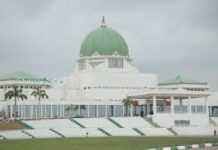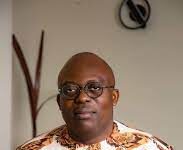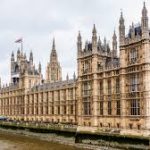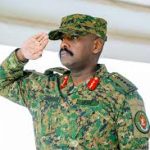By
’Tunji Ajibade

About half of the over 93 million registered Nigerian voters are said to be the youth. So much has been said by some commentators about how ready the youth are to vote. It’s an observation that I support. But when some take it further to make assertions about the change that the youth will bring about in the form of regime change in this presidential election I always have my doubt, believing such an assertion overlooks some issues. No doubt, what makes the Nigerian youth vote or how they vote is not being properly analysed.
Quite a few factors that I shall not have the space to discuss are in focus when reference is made to the youth as a voting bloc. In Nigeria, there is no such single bloc on the ground for the reasons I shall proceed to explain. Maybe some look online at the crowd that comments and conclude so. But on the ground a number of factors divide the Nigerian youth, or even the younger generation in general. There are some points that I outline from time to time in my tweets but which I’m sure don’t meet with the pleasure of many who don’t like to hear reality. As it does almost all the other segments of the voting population some primordial factors influence the younger generation as well. Even before I go into all of that I shall point out the demography that applies here, if I may refer to it as such.
The younger generation in the country is divided into those in the south and those in the north. There are a few things they may see the same way. But they don’t see all things the same way. The manner either is influenced when it comes to who they vote is somewhat different too. Take out unemployment, future economic prospects etc., the rest of the issues that may unite the younger generation are not so clear-cut. In the south, those of the younger generation are often at one another’s throats on tribal basis. Some of the exchanges among the youth of the southern tribes on online group platforms are a case in point. The exchanges are bitter, deep, very unforgiving, and very tribe-based – particularly between the Yoruba and the Igbo members of such online groups. If anyone states that this is the younger generation that will vote in a united manner to bring about any so-called regime change, then they need to do a reassessment.
There is as well the dichotomy between the younger generation of the north and the south. That these two sides carry with them a deep sense of political history that sometimes informs how and who they vote is putting it lightly. On many fronts, they don’t see things in the same way. There is deep animosity between them and these too could be seen in their online exchanges. This is something I have had reasons to point out online. At every point, the educated younger generation in the north and the south insult one another much of the time. The Muslim, Hausa and Fulani of the north tend to be regarded as different and targeted for insults by their southern counterparts.
Many from the north who share views with those in the south tend to be from minority Christians areas of the north. One thing unites them here, Christianity, and on the basis of which Muslim, Hausa and Fulani from the north are regularly insulted. One may check some of the social media platforms where youth of southern origin are more prominent, northern youth who are Muslims, Hausa and Fulani tend to be mostly quiet or missing. How widely they are insulted is seen in how P-Square, a prominent Nigerian musician, dismissively and insultingly addressed a northern Muslim youth on twitter, “All this stupid abokis.”
The word “aboki” means friend in Hausa, but most southerners used it as a form of derision for northern Muslims who are Hausa or Fulani. In the event, and on most social media platforms, Muslim northerners tend to be more quiet because they get insulted often by the younger generation of southerners. This is a divisive issue in the so-called united front among Nigerian youth. And if anyone makes permutations on the election, but doesn’t consider how such division affects the manner this segment of the population votes their analysis is incomplete.
Moreover, there are issues that divide the youth in the north. Youth from minority Christian areas in the north have their deep differences with youth of Muslim, Hausa and Fulani origin. Even on university campuses, the animosity is ever noticeable as each side tends to vote in campus elections as well as form associations based on their ethnic and religious differences. In Christian areas of the north, their religious leaders influence who and how the youth vote, and the same applies among the Muslim, Hausa and Fulani youth. The recent farmer-herder violence has further deepened the animosity which informs the pattern of how the youth on either side vote in the north. Of late there are calls by some leaders in Christian areas as to who they want their people to vote for. Even they don’t agree on just one presidential candidate, the three leading contenders being adopted by Christian groups in different states.
Moving away from this point is the political structure that influences and motivates voters. Sometimes the youth are not exempted in this, particularly in the north. This is how it works. The not so educated youth in the north typically follow a political leader, more often than not, at the grassroots level. There are benefits for them for doing so. To some extent, the same applies to the younger generation who have some level of education, particularly the student population. In the north, politicians in office wield a lot of influence with this segment, Reason? They make all manner of scholarships available – from the state governor, to the senators, Reps, House of Assembly members, local government chairman, and the ward councilors. Fund is made available to youth who are in tertiary institutions. Like other segments of the voting population, the youth in school tend to be loyal to such politicians. That is one angle.
The other angle is that in the north, youth, educated or otherwise, tend to follow the political opinion of diverse leaders in many more ways than the youth in the south of the country do. This is where religious leaders, District Heads, and traditional rulers are important. Their words still sway the northern youth much more than in the south. If these opinion leaders don’t support a political candidate, especially one from the south of Nigeria, the chances of such candidate are lean. This is one reason a presidential candidate from the south needs to have such opinion leaders on their side.
Linked to this is the sense of history of the northern youth, especially those from the Muslim, Hausa and Fulani section of the north. They tend to be more keen to maintain what they see as the deeds of their heroes past, including past leaders such as Sir Ahmadu Bello, the first Premier of Northern Nigeria. There is a northern view of things, and any presidential candidate particularly from the south who is seen to be remotely a threat to that is less likely to get their vote – youth or no youth.
To the foregoing is also the fact that the youth are notorious for not turning out to vote in the large numbers that they have. They show enthusiasm in pre-election days, but on the day of election they are not willing to put in the effort to bring whatever they wish into reality. Failure to vote is a challenge more in the south of the country than in the north. In the event, the youth tend to be the ones who lose an election for themselves. For me, the more impactful aspect of this lack of united front at election time is how youth in the south tend to ostracize those from the north. There’s that mentality of treating their northern fellow youth as being somehow inferior, and it comes across in many of their comments online. Northern youth, especially of Muslim, Hausa and Fulani origin, nurse their wounds as a result of such treatment, and they bear it in mind always. To have a united front in any election against such a backdrop is a challenge.
As I stated in a social media post, many from the south insult people from the north; but when it is election time these southerners automatically expect northerners – especially Muslim, Hausa and Fulani who have larger population, to vote for the candidate from their tribe. It doesn’t always turn out that way. The tribes you insult and show disrespect will forever wait for an opportunity to take their pound of flesh. Politics, particularly who people vote for, sometimes thrive on long memory – pleasant memory.
Most southern youth don’t factor this into how they relate with others across tribes, they don’t make long term investments that they or their tribe can reap from politically. It’s there in how they routinely insult or mock others. So to assume they will reap a united front during election where they haven’t sown is fiction. As such it is essentially Nigerian youth who defeat themselves during election. Nothing so far indicates that there is something in the manner Nigerian youth, north and south, relate to engender a voting pattern that will make the ruling party to not clinch this.
tunjiaoa@gmail.com










